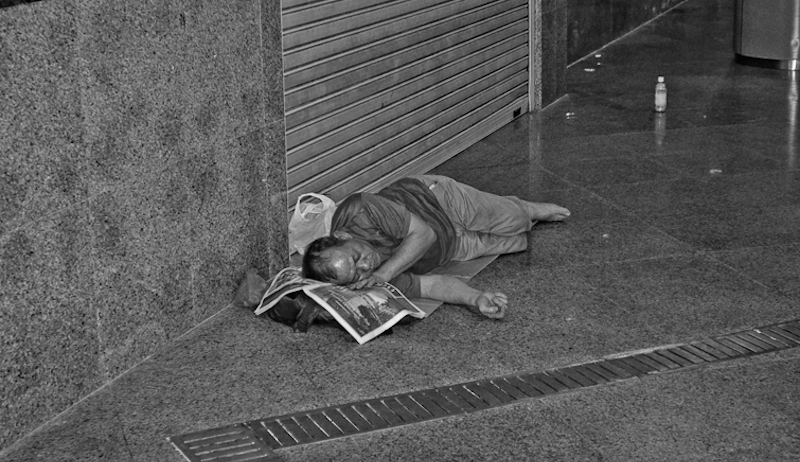Singapore is many things — it’s a fine city, it’s a garden city, and it’s one of the most expensive cities in the world to live in. But peer through its clean, shiny veneer and you’ll find something else: the homeless among us.
In March this year, a first-of-its-kind street survey on the homeless in Singapore was conducted by volunteer welfare organization Montfort Care and volunteer group SW101, which helps low-income individuals. Over the course of five hours — from 9pm to 2am — 100 volunteers found 180 people (mostly men) sleeping outdoors in 25 locations across the island, mainly at parks, shopping centres, and HDB blocks.
The Straits Times reported that out of the 180 people, 84 gave responses to the survey questions, which included ones on personal particulars and home ownership. The others either declined or were fast asleep. About 21 of them had been sleeping outdoors for over a year, while 18 had been doing so for more than five years.
But none of the people surveyed had approached shelters for help, and less than 20 percent asked for assistance from family, friends, or the authorities. The founder of volunteer group Homeless Hearts, which befriends the homeless, said that some simply prefer the freedom of living on the streets.
According to the volunteers who talked to the homeless individuals, some of the conditions they were found sleeping in were pest-infested, urine-stained and uncomfortable, noted Channel NewsAsia.
It was discovered that a good proportion of them were employed and aged above 50. The ones with jobs were often cleaners or security guards. More than a quarter of them had registered addresses, usually rental flats.
Needless to say, many of them did not fit the homeless stereotype.
Ng Kok Hoe, a member of SW101 and an assistant professor at the Lee Kuan Yew School of Public Policy, said that “you would think that if people were sleeping outside, if these were the numbers and if it has been happening for so long, we would have noticed. I think it reminds us how invisible they often are.”
“For us it came as a sharp reminder [of] people with lower skills, lower education who end up in unstable, low-paying work,” he added, speaking at a social work seminar on Saturday. “”It was a wake-up call for us [that] you could hold a job, and still be in such housing instability that you end up on the streets.”
Of course, the survey was not a nationwide count, so Prof Ng explained that it was likely to “underestimate the actual extent of homelessness in Singapore”.
In response to the findings, the Ministry of Social and Family Development (MSF) said that it assists about 300 cases of homelessness each year. These include people who have no accommodation and require housing support, but they exclude those who have a home but choose to sleep in public due to reasons like family disagreements. Most tend to be older, with physical or mental health conditions, and have no means of supporting themselves.
According to MSF stats, the number of homeless has fallen through the years, from 321 in 2013 to 269 last year. But while MSF continues to look into all cases brought to its attention, “there are some who prefer to be self-reliant or decline assistance for other reasons”, said a spokesperson.
However, regardless of their reasons, Prof Ng encouraged the public to be concerned for the homeless and their well-being. “When the public is not aware of the problem, our society cannot begin to address it properly,” he said.





Reader Interactions